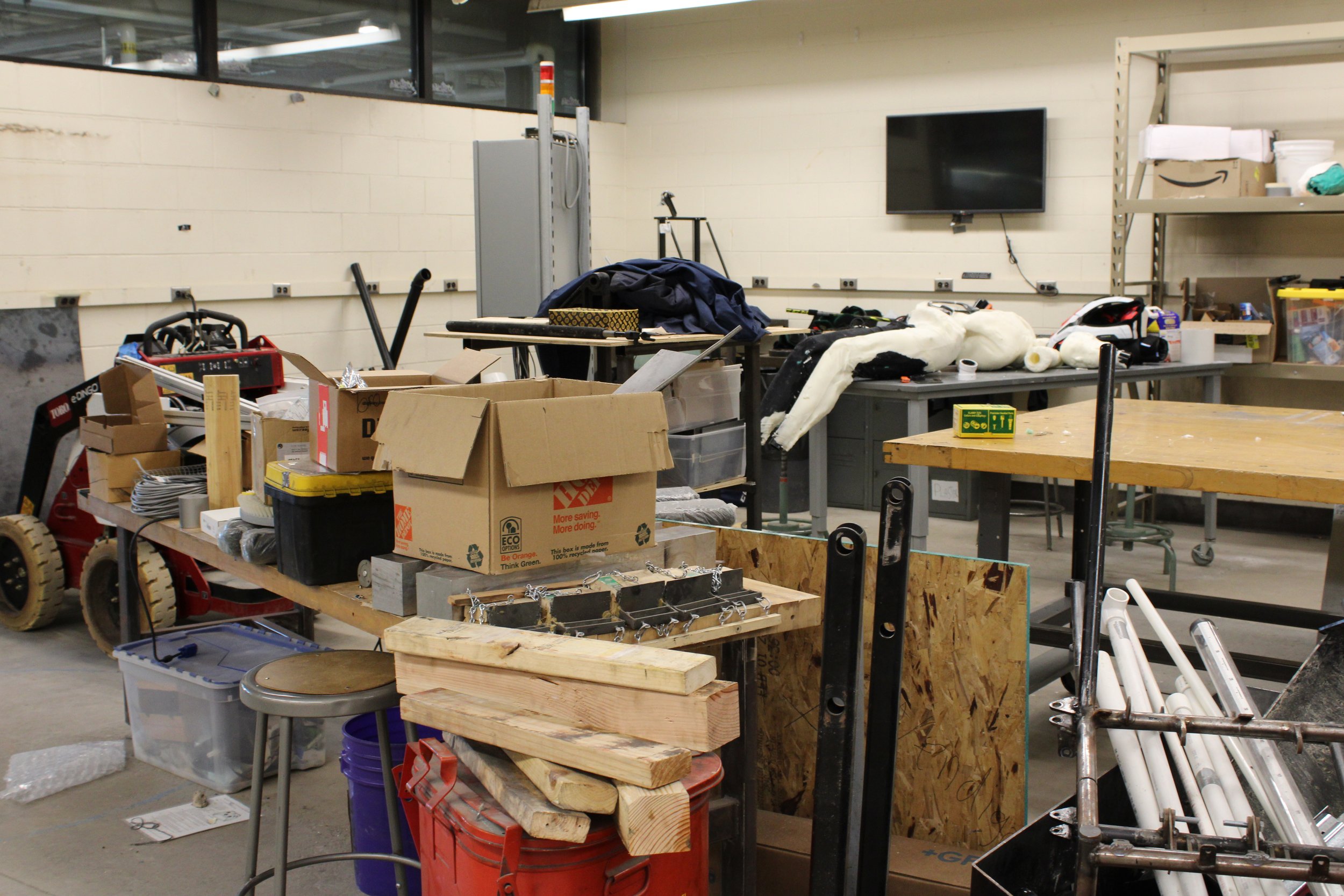UMD Engineering Students Push for Voss-Kovach Hall Remodel
Ryan Schabert leading a tour of Voss-Kovach Hall to highlight areas of concern. Photo by Finlee Matejcek
Mechanical Engineering was ranked as the third most popular major at UMD in 2023, according to U.S. News. However, the space and utilities that Engineering majors are given does not reflect that.
Voss-Kovach Hall was constructed in the early 1960s and is currently the oldest building at UMD with active lab spaces. This leads to many safety hazards, sustainability issues and inefficiency. Ryan Schabert, third year Mechanical Engineering major and president of UMD’s chapter of Engineers Without Borders, has been lobbying along with his peers for a change to the building.
“This project is absolutely necessary for the integrity, reputation, safety and longevity of UMD’s Mechanical and Industrial Engineering program,” Schabert said.
One main problem area of the building is the underutilized space. There are multiple lab rooms that are not being used and even more that are constantly disorganized and cluttered with materials. There is an ongoing issue with the program receiving specific machinery, but when the student that works with it graduates, the machinery simply sits around because there is no good way to dispose of it.
There is a large machine (pictured below) that is taking up a good portion of a lab that nobody knows the name of. Lab coordinator Steve Swanson calls it the “sunshine machine.”
The "sunshine machine," which takes up the majority of this lab space. Photo by Finlee Matejcek
“There are probably about 20 people in the world that know how to use this,” Swanson said.
Because of cases like this one, there are many lab spaces that are underutilized due to clutter and the structure of the area.
There are no exterior doors or windows in the labs. This means that in a dire situation a student would have to navigate through a minimum of three doorways in order to exit the building. There is one room that locks automatically from the outside, meaning if someone were to unknowingly get stuck, they would be there for a while. Cell service is also a luxury in Voss-Kovach due to the hall not having any windows.
Students have been taking notice of these hazards and with Schabert’s efforts to put change in motion, they have a platform to speak out.
“I am frustrated with the amount of safety advocacy students have had to do for the bare minimum amount of support from the university. Perhaps a fresh start in a new building could change this,” UMD Junior Evan Kobler said.
The ventilation is especially bad, which can lead to many dangers. There are some fume hoods that aren’t operating properly. In September of 2024, there was a chemical explosion in one of the labs. The poor ventilation is not the cause of this but it was the reason why multiple buildings including Engineering and Endazhi-gikinoo’amaading were shut down.
These buildings were “shut down for an entire day over an issue that could’ve been cleared within a couple hours with proper safety standards,” Schabert said.
Because of its age, Voss-Kovach Hall does not cater to sustainability or accessibility. It would be extremely difficult for a wheelchair user to maneuver the building seeing as there is only one elevator and very narrow hallways.
Disorganized and cluttered lab space in Voss-Kovach Hall. Photo by Finlee Matejcek
An in-depth survey was conducted regarding Voss-Kovach Hall, which garnered 76 responses. On a scale of 1-10, participants were asked to rate the building overall. The average rating was 3.68. Participants were also asked if they felt their degree would be more valuable with more up-to-date facilities, to which 89.5% said yes.
Schabert has presented these issues to the Student Government Association (SGA) and led a tour of the hall for SGA members and multiple administrators that highlighted the areas of concern.
“I have done everything in my power up to this point to show the urgency of the situation, so it’s all just dependent on whether or not the administration takes it to heart,” Schabert said.



